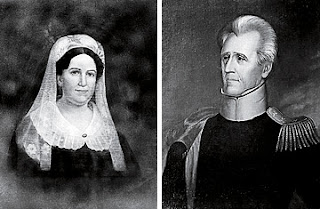I know we often criticize The Hatchet here on GW Blogspot, but we would be remiss if we didn’t take some time to examine GW’s other major news source—the Daily Colonial.
In reading through the DC today, I came across this editorial by Danny Kampf, entitled “Torn.” In it, Kampf talked about being torn between voting for John McCain or the Democratic nominee, despite his liberal leanings.
In his commentary, Kampf makes the argument that Iraq is the number one issue in this election—I agree completely. Unfortunately, that’s the last place we agree—from that one point, Kampf’s logic train derails, tumbling off the trellis and crashing into the river below:
Every time it plays out the same. First I go over the litany of Democratic positions I support: universal healthcare, cap-and-trade, abolishing torture, closing Guantanamo, etc. Next I think of everything I don’t like about Republicans: jingoism, religion, national security paranoia, etc. Then I think, “Well, that was easy. I’m voting Obama (or Clinton).” And this is where it all breaks down. Somewhere within the deep recesses of my conscience comes the nagging question: What about Iraq?
Try as I might, I just cannot consign myself to abandon the Iraqi people. I am afraid, but am by no means certain, that a vote for either Barack Obama or Hilary Clinton would do just that. By this I don’t mean to imply that they would do so with malfeasant intentions, as many on the Right insist. I am content to leave such cheap caricatures to the unsavory likes of Rush Limbaugh and will instead assume that the difference is explained better by legitimate policy disagreements. Nevertheless, I do disagree with them. Strongly.
Iraq is a humanitarian crisis. Two and a half million people have left Iraq since our invasion. Perhaps more have been displaced within the country. Iraq Body Count estimates between 81,000-89,000 civilians have died. Some put the number far higher. Electricity and running water is at best erratic, even in the biggest of cities. The government is dysfunctional. Despite recent gains in security, a low-intensity civil war continues on slow burn. Conflicting religious, ethnic and geopolitical interests have carved up Iraq into enclaves of micro segregation.
And we want to leave?
Like a lot of other people, Kampf has fallen falls for one of the most insidious Republican talking points out there.
It’s the Hail Mary of Iraq war justifications, the last in a long line of debunked rationalizations for this war (finding WMD, getting rid of a brutal dictator, spreading freedom, enforcing U.N. resolutions, etc. etc.). In every debate about the war, it all comes down to this one point: “well, we can’t lust leave!”
No, we can’t. Fortunately, nobody’s proposing that.
The difference between the Republican and Democratic positions isn’t helping the Iraqi people versus abandoning them. It’s between helping them versus teaching them to help themselves.
The Republican position is that Iraq is a military problem that requires a military solution. Thus, the only way to fix Iraq is to dump American troops there and hope for success. But this begs the question, are American troops alone enough to fix Iraq? Clearly, the answer is no—this war has raged on for nearly five years and, despite the waxing and waning of violence levels, they have remained extremely high. In face, even after “the surge” dumped over 20,000 more soldiers into Iraq, we’re still losing American troops at the rate of more than one a day.
That’s the George W. Bush and John McCain strategy—after nearly 5 years and trillions of dollars, at least one American soldier will die today. 7 this week, 28 this month (February’s short), at least 365 this year. And that’s to say nothing of how many Iraqis will be killed—it’s hard to get any concrete number, but it’s safe to say it’s several times the amount of soldiers we’re losing.
The Democratic position is that Iraq is a multi-faceted problem that requires multiple solutions. There’s certainly a military component, which is why every Democratic candidate has supported keeping a residual force in or near Iraq—similar to the forces we keep in Korea, Japan and even Germany.
In addition, we Democrats want to foster self-reliance in Iraq—helping the Iraqi people develop and grow their own military, so they can stabilize and secure their own country. Right now, they’re using American troops as crutches—instead of developing their own military, they’re relying on ours. We Democrats want to teach them to stand for themselves, which would allow us to withdraw our troops safely.
But there’s also a political component—we want to bring the various power players in Iraq to the table, to hold negotiations and come to a political solution that will reduce the acrimony and conflict between Iraq’s various groups, factions and sects.
By signaling support for John McCain—who is one of George W. Bush’s strongest supporters on Iraq—Kampf is saying that the same policies that caused the Iraqi humanitarian crisis will somehow fix it, too. Unfortunately—as a recent study from RAND concluded—our current policies aren’t getting us anywhere. What Iraq needs isn’t more of the same—it isn’t John McCain, it isn’t a third Bush term. What Iraq needs is a change in strategy—a move toward self-reliance and independence that will allow the Iraqi people to stabilize and run their own country.
So, the choice is clear. If you want to continue the policies that made Iraq a humanitarian crisis, holding out hope that—one day—everything will suddenly turn around, by all means vote for John McCain. But if you want a stable and self-reliant Iraq, one that can run and protect and preserve itself without using U.S. troops as a crutch, then you should definitely vote Democratic.
Plus, you’d get better economic, environmental, constitutional and social policies, too.















